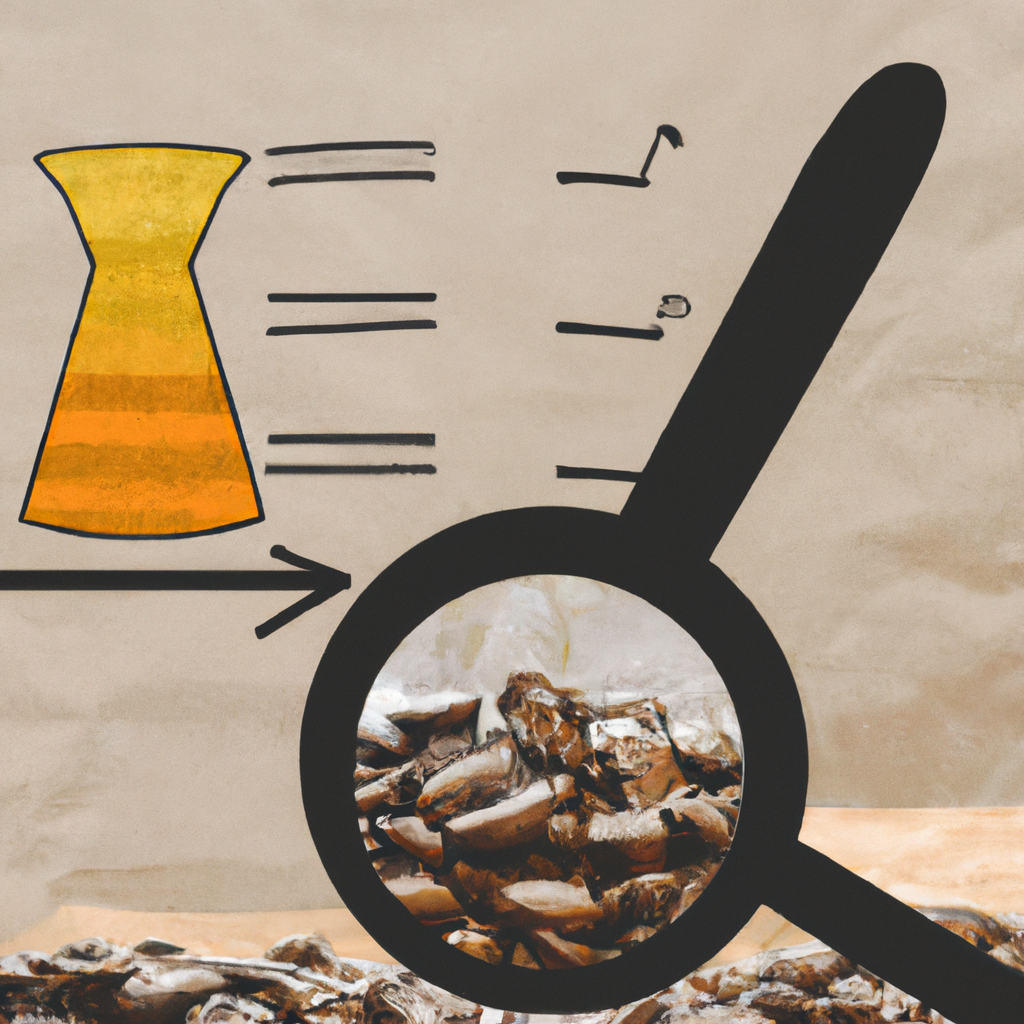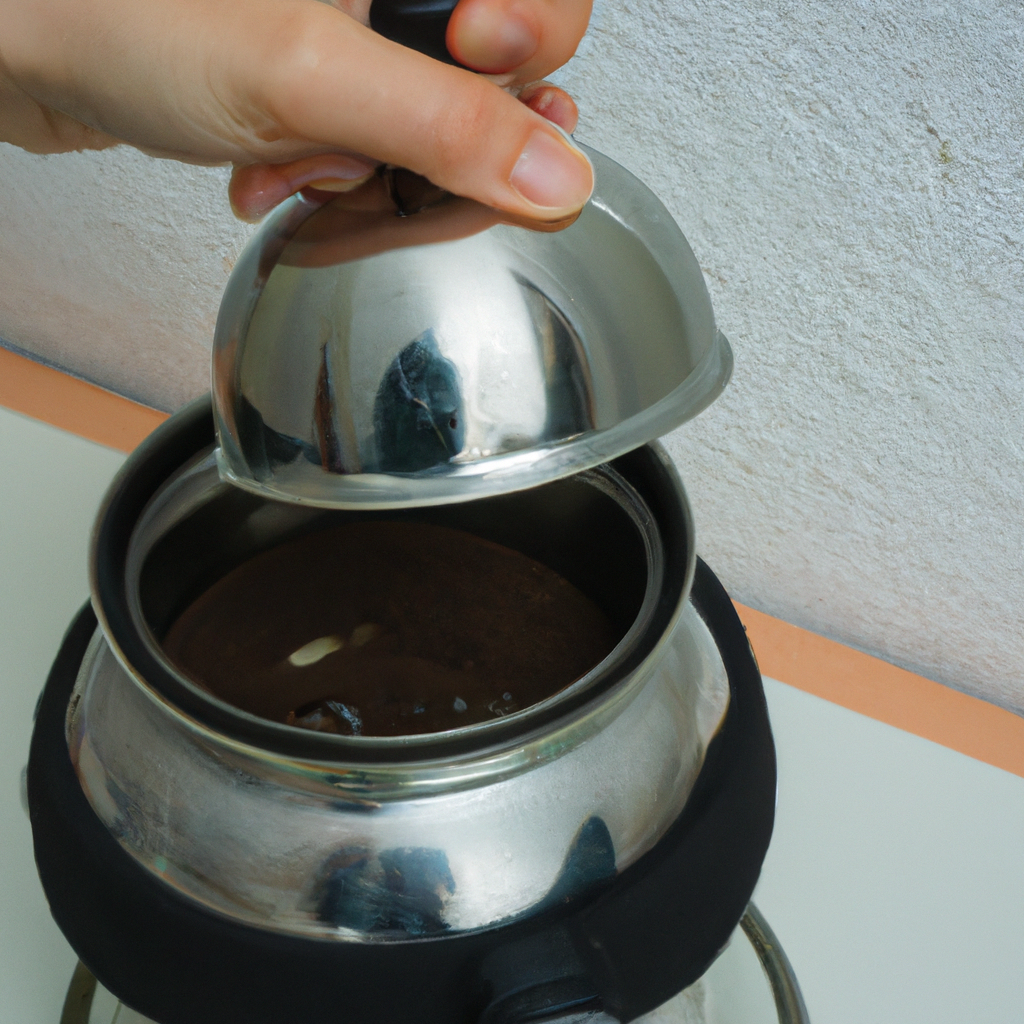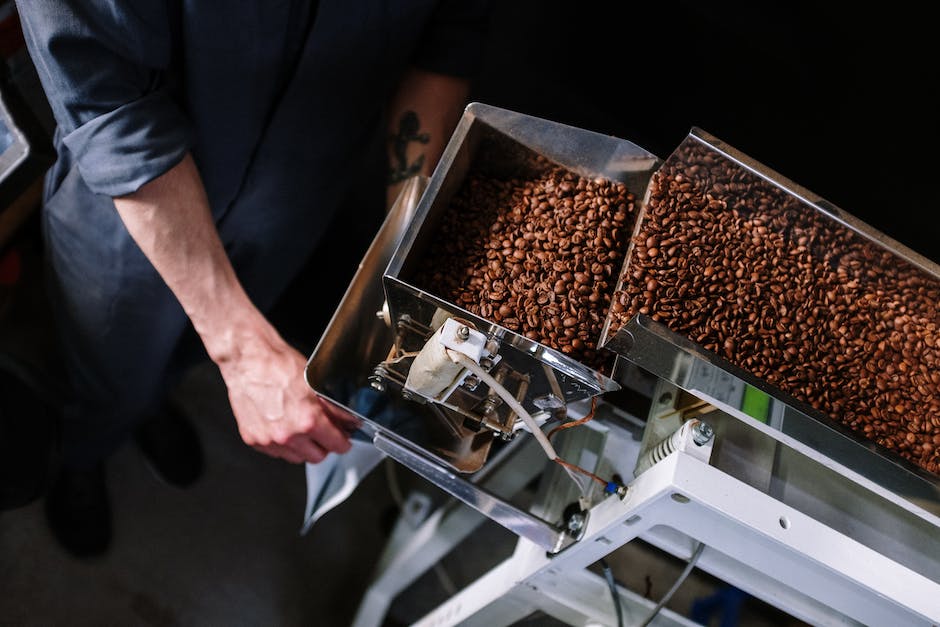-
Table of Contents
- Introduction
- Benefits of Using Coffee Grounds as Fertilizer for Plants
- How Coffee Grounds Improve Soil Quality for Plant Growth
- Coffee Grounds as a Natural Pest Repellent for Plants
- Using Coffee Grounds to Compost and Enrich Garden Soil
- The Science Behind Coffee Grounds’ Effectiveness on Plant Health
- Conclusion
Introduction
Coffee grounds are a popular organic material used in gardening. They are rich in nitrogen, phosphorus, and potassium, which are essential nutrients for plant growth. In this article, we will explore what coffee grounds do for plants and how to use them effectively in your garden.
Benefits of Using Coffee Grounds as Fertilizer for Plants
Coffee is one of the most popular beverages in the world, and it is estimated that over 2.25 billion cups of coffee are consumed every day. However, what many people don’t know is that coffee grounds can be used as a fertilizer for plants. In fact, coffee grounds are an excellent source of nutrients for plants, and they can help improve soil quality, promote healthy growth, and even repel pests.
One of the main benefits of using coffee grounds as a fertilizer is that they are rich in nitrogen, which is an essential nutrient for plant growth. Nitrogen is a key component of chlorophyll, which is the pigment that gives plants their green color and is responsible for photosynthesis. By adding coffee grounds to the soil, you can help provide plants with the nitrogen they need to grow strong and healthy.
In addition to nitrogen, coffee grounds also contain other important nutrients such as phosphorus, potassium, and magnesium. These nutrients are essential for plant growth and can help improve soil quality by increasing the availability of nutrients to plants. Coffee grounds also contain trace amounts of other micronutrients such as copper, zinc, and manganese, which are important for plant health.
Another benefit of using coffee grounds as a fertilizer is that they can help improve soil structure. Coffee grounds are high in organic matter, which can help improve soil texture and water retention. This can be especially beneficial for plants that require well-draining soil, such as succulents and cacti. By adding coffee grounds to the soil, you can help create a more porous and aerated soil structure, which can help improve root growth and nutrient uptake.
Coffee grounds can also help repel pests such as slugs and snails. The caffeine in coffee grounds is toxic to these pests, and it can help deter them from feeding on plants. To use coffee grounds as a pest repellent, simply sprinkle them around the base of plants or create a barrier around the garden bed.
When using coffee grounds as a fertilizer, it is important to keep in mind that they are acidic. This means that they can lower the pH of the soil over time, which can be beneficial for acid-loving plants such as blueberries and azaleas. However, for plants that prefer neutral or alkaline soil, it is important to use coffee grounds in moderation and to monitor the pH of the soil regularly.
To use coffee grounds as a fertilizer, simply sprinkle them around the base of plants or mix them into the soil. It is important to use coffee grounds in moderation, as too much can lead to nitrogen burn and other nutrient imbalances. A good rule of thumb is to use no more than 10-20% coffee grounds in the soil mix.
In conclusion, coffee grounds are an excellent source of nutrients for plants and can help improve soil quality, promote healthy growth, and even repel pests. By using coffee grounds as a fertilizer, you can help provide plants with the nutrients they need to thrive and create a more sustainable and eco-friendly garden. So the next time you make a cup of coffee, don’t throw away the grounds – instead, use them to give your plants a boost!
How Coffee Grounds Improve Soil Quality for Plant Growth
Coffee is one of the most popular beverages in the world, with millions of people consuming it every day. However, what many people don’t know is that coffee grounds can be used to improve soil quality for plant growth. Coffee grounds are rich in nutrients that plants need to thrive, and they can also help to improve soil structure and water retention.
One of the main benefits of using coffee grounds in soil is that they are a rich source of nitrogen. Nitrogen is an essential nutrient for plant growth, and it is often the limiting factor in soil fertility. Coffee grounds contain around 2% nitrogen by weight, which is a significant amount. When coffee grounds are added to soil, they release nitrogen slowly over time, providing a steady supply of this essential nutrient to plants.
In addition to nitrogen, coffee grounds also contain other important nutrients such as phosphorus, potassium, and magnesium. These nutrients are essential for plant growth and development, and they can help to improve the overall health of plants. Coffee grounds also contain trace amounts of other micronutrients such as copper, zinc, and manganese, which are important for plant growth but are often lacking in soil.
Another benefit of using coffee grounds in soil is that they can help to improve soil structure. Coffee grounds are high in organic matter, which can help to improve soil texture and water retention. Organic matter is important for soil health because it helps to create a porous soil structure that allows air and water to move freely through the soil. This can help to prevent soil compaction and improve drainage, which is important for plant growth.
Coffee grounds can also help to increase the acidity of soil, which can be beneficial for certain types of plants. Coffee grounds have a pH of around 6.5, which is slightly acidic. When coffee grounds are added to soil, they can help to lower the pH, making the soil more acidic. This can be beneficial for plants that prefer acidic soil, such as blueberries, azaleas, and rhododendrons.
However, it’s important to note that coffee grounds should be used in moderation when adding them to soil. Too much coffee grounds can actually have a negative effect on plant growth. Coffee grounds are high in caffeine, which can be toxic to plants in large quantities. They can also be acidic, which can be harmful to some plants if the pH of the soil becomes too low.
To avoid these issues, it’s best to use coffee grounds in moderation when adding them to soil. A good rule of thumb is to use no more than 10-20% coffee grounds in soil. This will provide enough nutrients to plants without causing any negative effects.
In conclusion, coffee grounds can be a valuable addition to soil for plant growth. They are a rich source of nutrients, including nitrogen, phosphorus, potassium, and magnesium, and they can help to improve soil structure and water retention. However, it’s important to use coffee grounds in moderation to avoid any negative effects on plant growth. By using coffee grounds responsibly, you can help to improve soil quality and promote healthy plant growth.
Coffee Grounds as a Natural Pest Repellent for Plants
Coffee Grounds as a Natural Pest Repellent for Plants
Coffee is one of the most popular beverages in the world, and it is estimated that over 2.25 billion cups of coffee are consumed every day. However, what many people do not know is that coffee grounds can be used as a natural pest repellent for plants. Coffee grounds are rich in nitrogen, phosphorus, and potassium, which are essential nutrients for plant growth. In addition, coffee grounds contain caffeine, which has been shown to repel insects and other pests.
One of the most common pests that affect plants is the slug. Slugs are known to feed on the leaves and stems of plants, causing significant damage. However, coffee grounds can be used to repel slugs. The caffeine in coffee grounds acts as a natural pesticide, which repels slugs and other pests. To use coffee grounds as a slug repellent, simply sprinkle the grounds around the base of the plant. The caffeine in the coffee grounds will create a barrier that slugs will not cross.
Another common pest that affects plants is the ant. Ants are known to farm aphids, which feed on the sap of plants. However, coffee grounds can be used to repel ants. The caffeine in coffee grounds disrupts the scent trails that ants use to navigate, making it difficult for them to find their way to the plant. To use coffee grounds as an ant repellent, simply sprinkle the grounds around the base of the plant or create a barrier around the plant.
Coffee grounds can also be used to repel other pests, such as snails, caterpillars, and beetles. The caffeine in coffee grounds acts as a natural pesticide, which repels these pests. To use coffee grounds as a pest repellent, simply sprinkle the grounds around the base of the plant or create a barrier around the plant.
In addition to repelling pests, coffee grounds can also be used as a fertilizer for plants. Coffee grounds are rich in nitrogen, phosphorus, and potassium, which are essential nutrients for plant growth. To use coffee grounds as a fertilizer, simply sprinkle the grounds around the base of the plant or mix them into the soil.
However, it is important to note that coffee grounds should be used in moderation. Too much coffee grounds can be harmful to plants, as they can increase the acidity of the soil. In addition, coffee grounds should not be used on plants that prefer alkaline soil, such as azaleas and rhododendrons.
In conclusion, coffee grounds can be used as a natural pest repellent for plants. The caffeine in coffee grounds acts as a natural pesticide, which repels slugs, ants, and other pests. In addition, coffee grounds can be used as a fertilizer for plants, as they are rich in essential nutrients. However, it is important to use coffee grounds in moderation and to avoid using them on plants that prefer alkaline soil. By using coffee grounds as a natural pest repellent and fertilizer, you can help your plants grow healthy and strong.
Using Coffee Grounds to Compost and Enrich Garden Soil
Coffee is one of the most popular beverages in the world, with millions of people consuming it every day. However, what many people don’t know is that coffee grounds can be used to enrich garden soil and compost. Coffee grounds are a rich source of nitrogen, phosphorus, and potassium, which are essential nutrients for plant growth. In this article, we will explore how coffee grounds can be used to compost and enrich garden soil.
Composting is the process of breaking down organic matter into a nutrient-rich soil amendment. Coffee grounds are an excellent addition to compost because they are high in nitrogen, which is essential for plant growth. Nitrogen is a vital component of chlorophyll, the pigment that gives plants their green color and is responsible for photosynthesis. Coffee grounds also contain other essential nutrients, such as phosphorus and potassium, which are necessary for plant growth and development.
To use coffee grounds in compost, you can simply add them to your compost bin or pile. However, it’s essential to balance the nitrogen-rich coffee grounds with carbon-rich materials, such as leaves, straw, or shredded paper. This will help create a balanced compost that is rich in nutrients and beneficial microorganisms. It’s also important to mix the compost regularly to ensure that the coffee grounds are evenly distributed and don’t clump together.
In addition to composting, coffee grounds can also be used to enrich garden soil directly. Coffee grounds can be added to the soil around plants as a mulch or worked into the soil before planting. When used as a mulch, coffee grounds can help retain moisture in the soil, suppress weeds, and provide a slow-release source of nutrients for plants. When worked into the soil, coffee grounds can help improve soil structure, increase water retention, and provide essential nutrients for plant growth.
However, it’s important to use coffee grounds in moderation when adding them directly to garden soil. Coffee grounds are acidic, with a pH of around 6.5, which can be beneficial for some plants but harmful to others. Acid-loving plants, such as blueberries, azaleas, and rhododendrons, will benefit from the acidic nature of coffee grounds. However, plants that prefer alkaline soil, such as tomatoes and peppers, may not thrive in soil that is too acidic. It’s essential to test your soil’s pH before adding coffee grounds and to use them in moderation to avoid over-acidifying the soil.
In conclusion, coffee grounds are an excellent addition to compost and garden soil. They are a rich source of nitrogen, phosphorus, and potassium, which are essential nutrients for plant growth. When used in moderation, coffee grounds can help improve soil structure, increase water retention, and provide a slow-release source of nutrients for plants. However, it’s important to balance the nitrogen-rich coffee grounds with carbon-rich materials when composting and to use them in moderation when adding them directly to garden soil. With proper use, coffee grounds can be a valuable resource for any gardener looking to improve their soil’s health and fertility.
The Science Behind Coffee Grounds’ Effectiveness on Plant Health
Coffee is one of the most popular beverages in the world, with millions of people consuming it every day. But did you know that coffee grounds can also be beneficial for plants? Coffee grounds are a rich source of nutrients that can help improve soil quality and promote plant growth. In this article, we will explore the science behind coffee grounds’ effectiveness on plant health.
Coffee grounds are a byproduct of coffee production and are rich in nitrogen, phosphorus, and potassium. These nutrients are essential for plant growth and development. Nitrogen is necessary for the production of chlorophyll, which is responsible for photosynthesis. Phosphorus is essential for root development, while potassium helps regulate water balance in plants.
When coffee grounds are added to soil, they release these nutrients slowly over time, providing a steady supply of nutrients to plants. This slow-release mechanism is beneficial because it prevents nutrient leaching, which can occur when fertilizers are applied in large quantities. Nutrient leaching can lead to environmental pollution and can also harm plant growth.
In addition to providing nutrients, coffee grounds can also improve soil quality. Coffee grounds are slightly acidic, with a pH of around 6.5. This acidity can help lower the pH of alkaline soils, making them more suitable for plant growth. Coffee grounds can also improve soil structure by increasing soil porosity and water-holding capacity. This can help prevent soil compaction and improve drainage, which is essential for healthy plant growth.
Coffee grounds can also help suppress weeds. Coffee contains caffeine, which is toxic to many plants, including weeds. When coffee grounds are added to soil, they release caffeine slowly over time, which can help prevent weed growth. This natural weed control method is safe and effective and can help reduce the need for chemical herbicides.
Despite their many benefits, coffee grounds should be used in moderation. Too much coffee grounds can lead to soil acidity, which can harm plant growth. It is recommended to use coffee grounds as a soil amendment, mixing them with other organic materials such as compost or leaf litter. This will help balance the pH of the soil and provide a diverse range of nutrients to plants.
In conclusion, coffee grounds can be a valuable addition to any garden. They are a rich source of nutrients, can improve soil quality, and can help suppress weeds. When used in moderation, coffee grounds can help promote healthy plant growth and reduce the need for chemical fertilizers and herbicides. So, the next time you make a cup of coffee, don’t throw away the grounds. Instead, use them to give your plants a boost!
Conclusion
Coffee grounds can be used as a natural fertilizer for plants. They contain nitrogen, phosphorus, and potassium, which are essential nutrients for plant growth. Coffee grounds also improve soil structure, water retention, and drainage. However, it is important to use coffee grounds in moderation and mix them with other organic materials to avoid over-fertilization and acidity. Overall, coffee grounds can be a beneficial addition to a plant’s diet when used properly.





